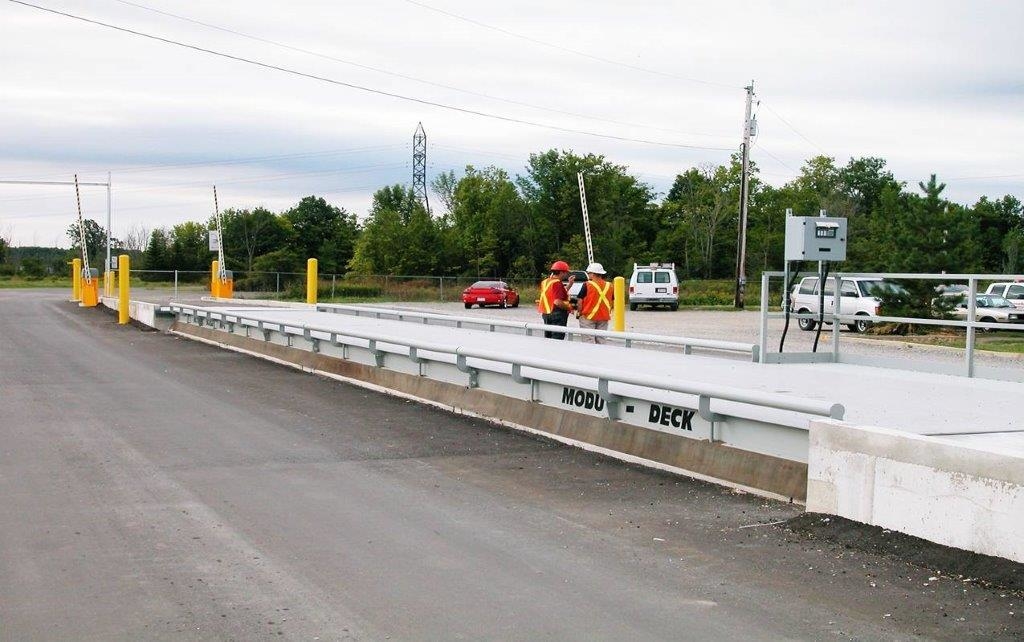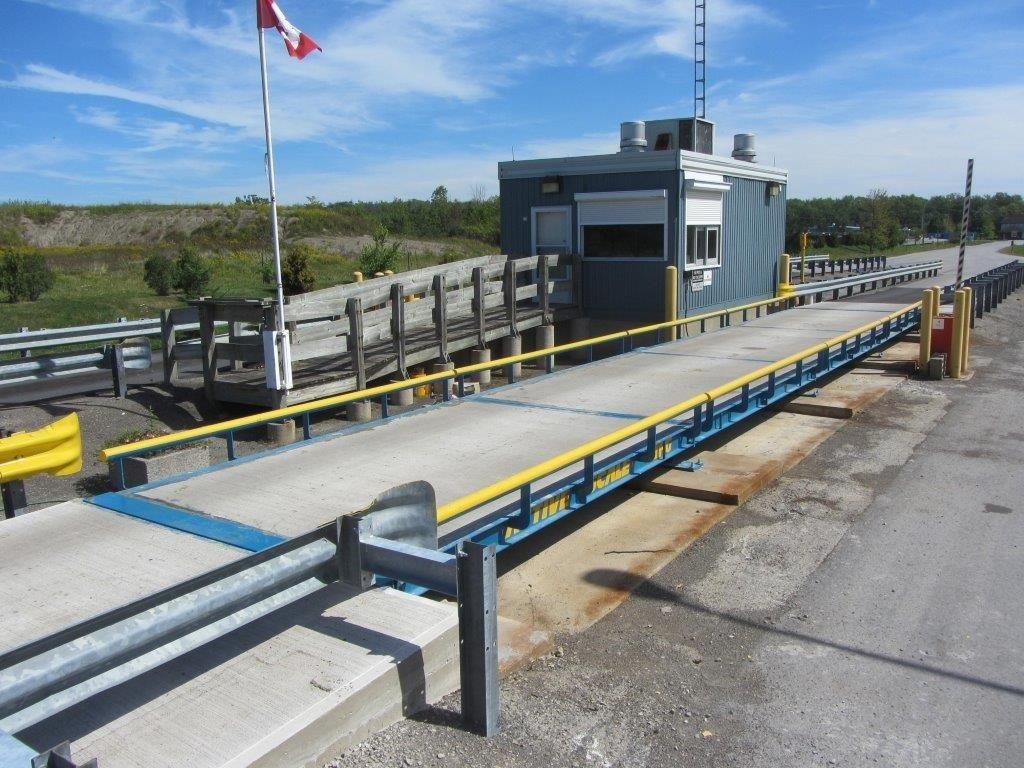Should You Choose a Steel or Concrete Deck Truck Scale?
When selecting a new truck scale for your facility, there are a lot of different factors to take into consideration. From determining the best scale model for your application to renting vs. purchasing and your ultimate price point, careful research and deliberation during the selection process can have enormous payoffs in the long term.
What is a weighbridge?
Weighbridge scale, sometimes called vehicle scales, are used to weigh trucks and other large vehicles. A weighment scale is made up of a foundation, indication, load cells, junction boxes, and any other necessary components. Depending on your unique weighing demands and environment, each of these components is available in a variety of kinds and materials.
The material of your scale’s weighbridge deck is an important aspect to consider when choosing a new vehicle scale. The best option for your weighing operations will ultimately depend on a variety of factors unique to your facility.
What are the different types of weighbridges?
Weighment bridges are available with concrete or steel decks and can be pit installed or surface mounted. Each kind has advantages and disadvantages, and the ideal option for your facility will ultimately depend on your specific requirements.
Keep reading for a breakdown of the pros and cons of each weighbridge material to help determine whether a steel or concrete truck scale is the best fit for your business.
How much time does it take to install a weighment bridge?
One of the most significant differences between concrete and steel deck truck scales is the installation time.
Steel deck truck scales can typically be installed and calibrated in just one day. After being manufactured off-site, they simply need to be transported to the scale’s location, installed in place and calibrated in preparation for use.
Concrete decks, on the other hand, take roughly a month for complete installation and calibration. After the installation, the poured concrete needs to be left to cure for 3-4 weeks before the scale can be calibrated.
Pouring the concrete, typically done by a third-party contractor, may also add additional cost and coordination to the installation of truck weighbridge.
If you’re in a time crunch to install a new scale or can’t accommodate a drawn-out installation process, a steel weighment bridge is probably your best option as compared to a concrete weighbridge.
What factors affect the price of weighbridges for trucks?
Ultimately, there’s not a significant difference in the purchase price between steel and concrete weighbridges. While there are many other factors that come into play in determining the final price of a scale, the material itself generally doesn’t have a notable impact.
One consideration, however, is resale value. Steel deck truck scales are much lighter and easier to relocate than concrete scales. This could help a steel truck scale sell at a higher value in the future, or at the very least make the process of selling and relocating the scale much easier.

Steel deck truck scales can be installed and calibrated in one day, have a higher resale value and are much easier to relocate.
Weather and Traction
Traction should be a consideration when choosing your weighbridge material. As far as vehicles are concerned, there is no significant difference in traction between steel and concrete. Steel decks are built with treads on the surface, providing similar traction to concrete for tires.
For people, however, traction is a slightly different story. Even with treads, concrete tends to offer better traction for anybody who needs to walk across the scale’s deck.
If you live in an area that experiences lots of wet, snowy or icy weather, a concrete deck may be the best option to ensure the safety of your scale operations.
How long does a truck scale last?
The lifespan of your scale is an important consideration, both for your operations and when calculating the long-term ROI of your truck scale. Maintenance plays a critical role in determining the lifespan of a truck scale, but the weighbridge material has an impact too.
Concrete decks are significantly heavier than steel, which improves the load distribution and ability to withstand the forces and stresses of heavy trucks and their movements. As a result, concrete deck truck scales generally have a lifespan that is 5-7 years longer than their steel counterparts.

Concrete truck scales offer better traction in wet or icy conditions and have a lifespan that is typically 5-7 years longer than steel.
Portability
There are significant differences in portability between concrete and steel truck scales. Depending on your needs, this could play a critical role in your decision making.
Concrete truck scales can weigh in at as much as four times heavier than steel ones. This makes them much more difficult and costly to relocate, whether it’s to a new location within your facility, for future resale or for end-of-life removal.
Steel deck truck scales are lighter and make relocation an easier process. If you’re looking to move your scale frequently, you should specifically look at installing a portable truck scale. If you’re simply looking for long-term flexibility in terms of scale location, a steel deck is probably the best material.
Corrosion
Depending on your environment, your truck scale may be exposed to corrosive materials. There’s no straightforward answer for this, as steel can withstand certain corrosive materials, while concrete is better suited to others.
Your best bet is to speak to a truck scale expert who can make weighbridge material recommends customized to your specific environment.
—
With its ability to impact the installation, lifespan, portability and more, weighbridge material selection is an important step in the truck scale selection process. Whether your operations are best suited to a steel or concrete deck depends entirely on your operational needs, environment and long-term considerations.
Active Scale manufactures leading-quality truck scales in both concrete and steel decks throughout Canada and the United States. Speak with our truck scale specialists today for expert advice on which weighbridge material is best for your needs.